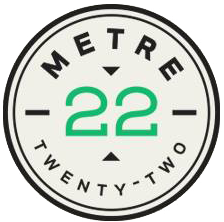Are you planning an acquisition this year?

DEFINE YOUR INTEGRATION PHILOSOPHY NOW TO MAXIMIZE POST M&A PERFORMANCE.
“Running a football franchise is not unlike running any other business. You start first with a structural format and basic philosophy and then find the people who can implement it.”
– Bill Walsh, legendary coach of the San Francisco 49ers
As I watched the college football season come to an end and listened to Clemson coach Dabo Swinney’s inspiring post-game speech, I couldn’t help but marvel at the way coaches like Swinney, Walsh, Nick Saban (Alabama) and of course Bill Belichick (New England Patriots) are able to consistently lead their teams to the top, year after year. How do they motivate their players to strive for perfection? How do they always seem to be more prepared than the other team? How do they make it repeatable?
As I thought through these questions, I was reminded of the book by Walsh titled The Score Will Take Care of Itself: My Philosophy of Leadership. The book provides leaders a framework to develop a script for success, keys to preparation and contingency planning, and tools to instill confidence in others to deliver under pressure.
Similarly, our experience at Metre22 has shown that highly acquisitive organizations can benefit from the development of an Integration Philosophy — a codified framework that sets the direction for how the organization defines integration success and the guiding principles for executing the M&A strategy.
Coach Walsh said it best. Describing his standard of performance philosophy, he called it “a conceptual blueprint for action; that is, a perception of what should be done, when it should be done, and why it should be done. Your philosophy is your single most important navigation point on your leadership compass.”
An Integration Philosophy does the same thing. It provides the organization a true north for how to plan and execute based on expertise and lessons learned from previous transactions. It’s a summary of guiding principles that outlines integration standards and must-do-actions.
Typically organized by functional areas, the standards represent key integration actions across a set of time horizons (30, 60, 90 days).
Example:
We will complete the sales plan for customer/account and pricing rationalization for acquired products within 60 days after close.
and:
Acquired companies will transition to operating under the acquirer’s corporate brand within one year after transaction close, or as soon as feasible.
Keep in mind that an Integration Philosophy is not a project plan. It is a written script that defines key strategic decisions already determined by leadership. It is based on what they previously agreed to as the desired end-state of “integration complete.” The strategic decisions may vary depending on the unique aspects of any given acquisition, but alternative approaches can be predetermined by deal type or defined during integration planning.
Of course, having a strategic Integration Philosophy is only the first step to ensuring a successful integration. Delivering results requires execution – fundamental blocking and tackling. Leaders should find the most capable and influential people (Senior Management, Integration Leads, Change Agents, etc.) in the organization and teach them the philosophy.
Like football, integrations are fast moving, challenging and take exhausting effort. Providing a written script gives people welcomed direction, alleviates uncertainty and allows for faster, more decisive decisions.
A recent national survey found that both corporate and private equity respondents ranked successful integration as the most important factor in deal success (23% of 1,000 respondents).1 At Metre22 we believe an Integration Philosophy can not only increase your chances for success but can speed the creation of value by:
- Providing guidance to leaders related to how they view acquisitions and what their expectations for integration are;
- Improving the odds for success and mitigating risks;
- Speeding up decision-making in future deals.
Combining lessons learned from the past with expertise and understanding of your business, an Integration Philosophy will direct your organization toward success during pre-planning and well before post-transaction activities begin. This gives you a competitive advantage by ensuring your post-deal integration behaviors align to the intended value drivers of the deal.
If you are interested in developing an integration script and improving your chances for success, click here to read some of our additional blogs on how to succeed in post-deal merger and acquisition integration. Metre22 can help prepare you for both the foreseeable and unforeseeable events of M&A integration. The score will take care of itself.
1) “The State of the Deal: M&A Trends 2019;” Deloitte & Touche LLP; December 6, 2018
